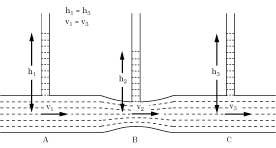Daniel Bernoulli
Elhuyar Fundazioa

Daniel Bernoulli entered the Dutch city of Groningen on 29 January 1700. His family went from Antwerp to seek refuge in the Basilea of Switzerland. At the end of the 20th century. Bernoullitos were famous mathematicians and physicists in Switzerland. Daniel's uncle Jakob was a mathematician of the time of Newton and Leibniz, and very good. Also his father Johann had achieved great fame and Daniel was born as a teacher of Groningan.
Daniel's father and uncle found new applications to mathematical calculation, but he also had two other brothers, a cousin and two nephews to the mathematician or scientist.
In 1705 Daniel and his family returned to Switzerland. There he studied medicine and mathematics.
In 1724 he wrote in Venice Excercitationes mathematicaes, solving separately the variables Ricatti Equation. He then worked with his brother Nicholas at the St. Petersburg Academy (1725-1733) and conducted basic research on the theory of elasticity and hydrodynamics.
In 1733 he returned to Switzerland and in Basel he taught botany, anatomy and natural philosophy. In 1738 he published his main work Hydrodynamica. When checking that by accelerating the speed of fluids the pressure decreased, it is called Bernoulli Principle. It is used to obtain vacuum in laboratories by connecting to a container of a pipe or rapid passage water siphon.
Bernoulli first raised the problem of gas behavior by altering its temperature and pressure. Boyle, Mariotte and Amontonons had seen these changes, but they were unable to explain them.
Bernoulli considered that the gases were composed of small particles and focused the problem mathematically. Applying the probability calculation of Pascal and Fermat, he obtained acceptable results, although the methods employed were not very strict.
If the scientists of that time paid more attention to Bernoulli's work, the advances in the path of atomism would have spread before.
For his part, Daniel participated with Euler and D’Alembert in the problem of vibratory threads, but also wrote works on medicine.
He died in Basel on 17 March 1782.





